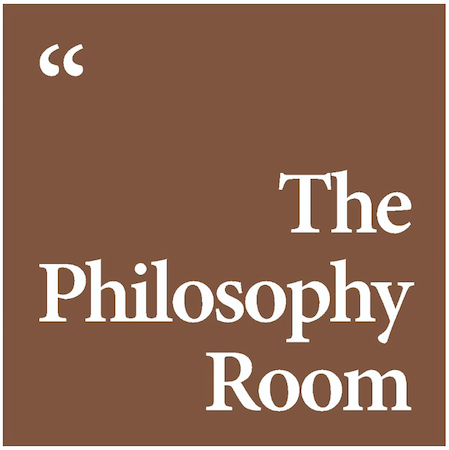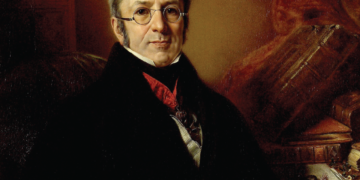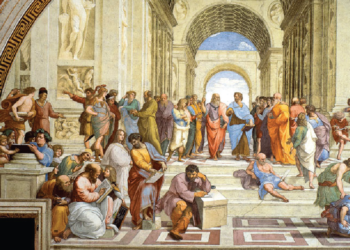Jean Bodin
1) His Biography
Jean Bodin, born in 1530 in Angers, France, was a prominent political philosopher, lawyer, and historian during the Renaissance. Bodin’s early life was shaped by the tumultuous political and religious climate of 16th-century France, a time marked by the Reformation and the consequent wars of religion. He received a thorough education, initially studying at the University of Toulouse, where he was influenced by the scholastic tradition and the revival of classical learning that characterised the Renaissance. This education laid the groundwork for his later contributions to political theory and law.
Bodin’s career began in academia, where he served as a professor of law at the University of Toulouse. His early works, including “Methodus ad Facilem Historiarum Cognitionem” (Method for the Easy Comprehension of History), published in 1566, reflected his deep interest in history and historiography. This book demonstrated his belief in the importance of historical knowledge for understanding political and legal systems, and it emphasised the need for a methodical approach to the study of history. His work was well-received and established him as an intellectual of considerable repute.
In addition to his academic pursuits, Bodin became actively involved in the political life of France. He served as a lawyer in Paris and later as a member of the Parlement of Paris, one of the most significant judicial bodies in France. His legal work provided him with practical insights into the functioning of the French state and its institutions. During this period, Bodin also engaged in diplomatic missions, including negotiations with England and the Holy Roman Empire, further broadening his perspective on European politics and international relations.
The pinnacle of Bodin’s intellectual career was the publication of his seminal work, “Les Six Livres de la République” (The Six Books of the Commonwealth), in 1576. This book is considered one of the foundational texts of modern political science and is particularly noted for its articulation of the theory of sovereignty. Bodin defined sovereignty as the absolute and perpetual power of a commonwealth, a concept that profoundly influenced the development of political theory in Europe. His ideas on sovereignty were a response to the religious wars and civil strife that plagued France, as he sought to provide a theoretical basis for strong, centralised authority that could maintain order and stability.
Bodin’s later years were marked by continued intellectual activity and public service. He was appointed as the Master of Requests, a significant administrative position in the French government, which allowed him to influence the implementation of legal and administrative reforms. Despite his commitment to the monarchy, Bodin maintained a critical stance towards absolute power, advocating for a balanced government that respected the laws and traditions of the realm.
Throughout his life, Bodin was also deeply interested in religion and philosophy. He wrote extensively on these subjects, including his controversial work “Heptaplomeres,” which remained unpublished during his lifetime. In this dialogue, Bodin explored religious tolerance and the coexistence of different faiths, a progressive stance in an era of intense religious conflict. His philosophical and religious writings reveal a thinker who was ahead of his time, advocating for ideas that would only gain wider acceptance centuries later.
Jean Bodin died in 1596, leaving behind a rich legacy of political and legal thought. His works continued to influence European intellectuals and statesmen long after his death. Bodin’s ideas on sovereignty and the nature of political authority laid the groundwork for the development of modern statecraft and constitutional theory. His contributions to historiography and legal theory also remain significant, marking him as one of the most important figures of the Renaissance. Bodin’s life and work exemplify the intersection of intellectual pursuit and practical statesmanship, and his enduring influence is a testament to the depth and originality of his thought.
2) Main Works
Methodus ad Facilem Historiarum Cognitionem (Method for the Easy Comprehension of History):
This work is one of Bodin’s earliest and showcases his profound interest in the study of history. “Methodus” is essentially a guide on how to approach and understand historical texts. Bodin emphasised the importance of a systematic method for studying history, advocating for a critical and comparative approach. He argued that understanding history was essential for understanding human affairs and the development of political institutions. This book laid the foundation for his later historical and political works, underscoring his belief that history provided vital lessons for governance and law.
Les Six Livres de la République (The Six Books of the Commonwealth):
Arguably Bodin’s most famous work, “Les Six Livres de la République” is a comprehensive treatise on political philosophy and the nature of the state. In this book, Bodin introduces the concept of sovereignty, defining it as the absolute and perpetual power of a commonwealth. He argues that a sovereign power must be undivided and possess ultimate authority over all other powers within the state. This work was revolutionary, influencing the development of modern political theory by laying the groundwork for the idea of the modern nation-state. Bodin also discusses various forms of government, including monarchy, aristocracy, and democracy, analysing their strengths and weaknesses.
Démonomanie des Sorciers (On the Demon-Mania of Witches):
In this work, Bodin addresses the topic of witchcraft, which was a significant issue in 16th-century Europe. “Démonomanie des Sorciers” reflects the widespread fear and obsession with witchcraft during his time. Bodin presents a detailed discussion on the nature of witchcraft, the supposed powers of witches, and the appropriate legal and judicial measures for dealing with them. He argues for the severe punishment of witches, believing them to be a real and present threat to society. This book provides a window into the mindset and cultural context of early modern Europe and demonstrates Bodin’s engagement with contemporary issues beyond political theory.
Heptaplomeres (The Colloquium of the Seven):
“Heptaplomeres” is a unique and controversial dialogue that remained unpublished during Bodin’s lifetime due to its sensitive content. The work is a philosophical discussion between seven men of different religious beliefs, including a Catholic, a Lutheran, a Calvinist, a Jew, a Muslim, a sceptic, and a natural philosopher. Through their dialogue, Bodin explores themes of religious tolerance, the coexistence of different faiths, and the quest for truth. This work is notable for its progressive stance on religious tolerance, advocating for mutual respect and understanding in an era marked by religious conflict. “Heptaplomeres” offers insight into Bodin’s more personal and philosophical beliefs, contrasting with his more formal political writings.
Universae Naturae Theatrum (Theatre of Universal Nature):
This work delves into natural philosophy and the study of the natural world. “Universae Naturae Theatrum” reflects Bodin’s interest in the sciences and his desire to understand the natural order of the universe. The book covers a wide range of topics, including cosmology, meteorology, and biology, and it attempts to synthesise contemporary scientific knowledge with philosophical inquiry. Bodin’s approach in this work is comprehensive, seeking to integrate empirical observation with theoretical speculation. This book demonstrates Bodin’s intellectual versatility and his engagement with the scientific questions of his time, complementing his more well-known contributions to political theory and law.
3) Main Themes
Sovereignty:
Bodin’s most original and influential contribution is his definition of sovereignty as the absolute and perpetual power of a commonwealth. He asserts that sovereign power must be indivisible and paramount, a radical departure from the fragmented feudal authority that characterised medieval Europe. This concept of sovereignty laid the groundwork for the modern understanding of the state, where ultimate authority rests with a single, centralised entity.
Bodin emphasised the need for centralised power to maintain order and stability, especially in the context of the religious wars in France. His ideas influenced the development of absolutist states in Europe, where monarchs like Louis XIV of France consolidated power, diminishing the influence of regional nobility and other competing authorities.
Unlike later thinkers such as Thomas Hobbes, who justified sovereignty on the basis of social contract and self-preservation, Bodin grounded his concept of sovereignty in legal and historical precedents. He argued that a sovereign must have the ultimate authority to make and enforce laws without being subject to them, a principle that anticipated the legal positivism of the 19th century.
Religious Tolerance:
In “Heptaplomeres,” Bodin presents a fictional dialogue among representatives of different religions. This work is significant for its progressive stance on religious tolerance during a period of intense religious strife in Europe. Bodin’s advocacy for dialogue and understanding between different faiths was a forward-thinking approach that contrasted sharply with the prevailing attitudes of persecution and intolerance.
Bodin’s examination of various religions highlights his belief in the underlying commonalities between different faiths. This comparative approach was pioneering and prefigured later scholarly efforts in religious studies. By showing respect for different beliefs, Bodin challenged the idea that any one religion held a monopoly on truth.
Despite advocating for tolerance, Bodin maintained a moral framework that emphasised the need for societal cohesion and ethical governance. He believed that while the state should allow for religious diversity, it must also ensure that religious practices do not undermine public order and morality, thus balancing tolerance with civic responsibility.
Historical Methodology:
In “Methodus ad Facilem Historiarum Cognitionem,” Bodin proposed a systematic approach to studying history, emphasising the importance of critical analysis and source evaluation. This methodological rigor was a significant departure from the hagiographic and anecdotal histories common in his time, paving the way for more scientific approaches to historiography.
Bodin integrated insights from law, politics, and philosophy into his historical studies. By doing so, he underscored the interconnectedness of different fields of knowledge and their collective importance in understanding human affairs. This interdisciplinary perspective influenced later historians and thinkers, such as Montesquieu, who also emphasised the role of various societal factors in historical development.
Bodin’s vision of history was expansive, aiming to cover not just European but also global events. His inclusive approach anticipated the emergence of world history as a distinct field of study. By recognising the importance of diverse cultures and societies, Bodin contributed to a more holistic understanding of human history.
Natural Law and Justice:
Bodin believed that natural law, a set of universal moral principles inherent in human nature, should form the basis of legal systems. His ideas in this regard were rooted in the classical tradition of thinkers like Aristotle and Cicero but also influenced by contemporary Renaissance humanism. This emphasis on natural law provided a counterbalance to the absolute authority of the sovereign, ensuring that rulers were not above moral scrutiny.
In his legal and political writings, Bodin stressed the importance of justice and equity in governance. He argued that laws should be just and applied fairly, reflecting the natural rights and dignity of individuals. This principle influenced later legal theorists, including John Locke, who built upon the idea of natural rights to advocate for constitutional government and individual liberties.
Although not articulated in modern terms, Bodin’s ideas laid the groundwork for later concepts of human rights. His insistence that laws be just and grounded in natural law presaged Enlightenment-era arguments for individual freedoms and the protection of personal rights against arbitrary state power.
Political Stability and Governance:
While Bodin is often associated with the idea of absolute monarchy, he also recognised the value of mixed government. He believed that a stable state could incorporate elements of monarchy, aristocracy, and democracy, each balancing the others. This idea influenced later political thinkers such as James Harrington and Montesquieu, who advocated for balanced government structures to prevent tyranny.
Bodin emphasised the practical aspects of governance, advocating for policies that would ensure the stability and prosperity of the state. His focus on practical statesmanship was a precursor to the realpolitik of later thinkers like Machiavelli, although Bodin maintained a stronger emphasis on moral and legal principles.
Bodin argued that rulers should possess civic virtue and prioritise the public welfare over personal gain. This ethical dimension of governance was integral to his political theory and influenced the development of republican thought. His ideas contributed to the discourse on the moral responsibilities of rulers, which became central to Enlightenment political philosophy and the subsequent development of democratic governance.
4) His Contribution to Law
Jean Bodin’s contributions to the field of law were profound and far-reaching, reflecting his deep understanding of legal principles and his innovative thinking. One of his most significant contributions was his theory of sovereignty, which he elaborated in his seminal work, “Les Six Livres de la République” (The Six Books of the Commonwealth). Bodin defined sovereignty as the absolute and perpetual power of a commonwealth, a concept that laid the foundation for modern legal and political theory. This idea was revolutionary because it proposed that the ultimate authority in a state must be indivisible and supreme, capable of creating and enforcing laws without external interference. This principle of sovereignty has since become a cornerstone of modern statehood and international law, influencing the development of legal systems around the world.
Bodin’s legal philosophy was deeply intertwined with his understanding of natural law, which he believed was a universal set of moral principles inherent in human nature. He argued that human-made laws should be grounded in these natural laws to ensure justice and equity. This perspective was crucial in shaping the legal thought of subsequent generations, particularly during the Enlightenment. Thinkers like John Locke and Jean-Jacques Rousseau built upon Bodin’s ideas, advocating for the protection of natural rights and the development of legal systems that reflect the intrinsic dignity and equality of all individuals. Bodin’s emphasis on natural law provided a moral framework that challenged the arbitrary exercise of power and laid the groundwork for modern human rights doctrines.
In addition to his theoretical contributions, Bodin was also a practical legal thinker who understood the importance of effective legal institutions. He served as a lawyer and a member of the Parlement of Paris, one of the highest judicial bodies in France. His legal experience informed his views on the administration of justice and the role of legal professionals in society. Bodin advocated for a well-organised and independent judiciary capable of upholding the rule of law and protecting citizens’ rights. His ideas anticipated later developments in judicial independence and the separation of powers, which are now fundamental principles in democratic legal systems.
Bodin’s work also addressed the need for a comprehensive and codified legal system. He recognised the complexity of legal traditions in France, which included Roman law, customary law, and royal ordinances. Bodin advocated for the harmonisation and codification of these diverse legal sources to create a more coherent and accessible legal system. This vision of a unified legal code was eventually realised in part through the efforts of later legal reformers, such as Napoleon Bonaparte, who introduced the Napoleonic Code. Bodin’s influence on the codification movement highlights his forward-thinking approach to legal reform and his commitment to creating a systematic and just legal order.
Another significant aspect of Bodin’s legal thought was his advocacy for the rule of law. He believed that a sovereign must govern according to established laws and that arbitrary rule was inherently unjust and destabilising. This principle was critical in shaping the development of constitutionalism, where the authority of government is limited by law. Bodin’s insistence on the rule of law influenced later political and legal thinkers, including those who drafted constitutions in the United States and other democratic nations. His ideas helped to establish the notion that even the highest authorities are bound by law, a concept that is fundamental to modern legal and political systems.
Finally, Bodin’s contributions to legal theory extended beyond his own time, influencing the evolution of legal thought in Europe and beyond. His work was widely read and debated by scholars and jurists, shaping the intellectual landscape of the early modern period. Bodin’s ideas on sovereignty, natural law, and the rule of law continued to resonate through the centuries, informing the development of legal doctrines and institutions. His legacy is evident in the principles that underpin contemporary legal systems, from the emphasis on human rights to the structure of democratic governance. Jean Bodin’s contributions to law were not only innovative for his time but also foundational for the legal advancements that followed.
5) His legacy
Jean Bodin’s legacy in political and legal thought is profound and enduring, influencing a broad spectrum of disciplines and laying the groundwork for modern political science and constitutional theory. His concept of sovereignty, articulated in “Les Six Livres de la République,” remains a cornerstone of political theory. Bodin’s definition of sovereignty as absolute and perpetual authority fundamentally shaped the development of the modern state. This concept influenced the centralisation of power in Europe, underpinning the rise of nation-states and the consolidation of monarchies in the early modern period. Later political philosophers, such as Thomas Hobbes and Jean-Jacques Rousseau, built on Bodin’s ideas, further developing theories of social contract and state authority that continue to impact political discourse today.
Bodin’s contributions to the field of law, particularly his advocacy for the rule of law and his emphasis on natural law, have had lasting impacts on legal theory and practice. His belief that laws should be grounded in universal moral principles and that sovereigns should govern according to these laws prefigured modern human rights doctrines and constitutionalism. The principles he championed were instrumental in shaping the development of legal systems that respect individual rights and uphold justice, influencing legal reforms and the drafting of constitutions in democratic states. Bodin’s legacy in law is evident in the continued relevance of his ideas in contemporary debates about the balance of power, the protection of human rights, and the role of law in governance.
In the realm of historiography, Bodin’s methodological contributions have also left a significant mark. His insistence on critical analysis and systematic study of historical sources helped to elevate the study of history to a more rigorous and scholarly discipline. By advocating for a comparative and interdisciplinary approach, Bodin influenced subsequent generations of historians, encouraging them to look beyond their immediate cultural and temporal contexts to understand the broader human experience. This approach has been foundational for the development of modern historical methods and the practice of historiography, promoting a deeper and more nuanced understanding of the past.
Bodin’s ideas on religious tolerance, as explored in his unpublished work “Heptaplomeres,” have also left an important legacy, particularly in the context of religious pluralism and intercultural dialogue. His progressive views on the coexistence of different faiths and the necessity of mutual respect were ahead of his time, foreshadowing the principles of religious tolerance and freedom that would later be enshrined in many modern legal systems. Although these ideas were not widely recognised during his lifetime, they have since gained prominence and are considered foundational in discussions about religious freedom and multiculturalism in contemporary society.
Furthermore, Bodin’s influence extends to the broader field of social and political philosophy, where his ideas on the nature of authority, governance, and justice continue to resonate. His work has been studied and referenced by numerous scholars, and his contributions have been integrated into the canon of political thought. Bodin’s interdisciplinary approach, combining elements of law, history, and philosophy, has inspired a holistic understanding of social and political issues, encouraging scholars to draw connections across different fields of study. This interdisciplinary legacy has enriched the intellectual landscape and has fostered a more comprehensive approach to understanding and addressing complex societal challenges.
Finally, Bodin’s legacy is reflected in the enduring relevance and application of his ideas in contemporary political and legal contexts. His insights into the nature of sovereignty, the importance of the rule of law, and the necessity of just governance continue to inform current debates and policies. As modern societies grapple with issues of state authority, individual rights, and the rule of law, Bodin’s work remains a vital reference point, providing a foundational framework for addressing these enduring questions. Jean Bodin’s legacy, therefore, is not confined to the past but continues to influence and inspire ongoing discussions about the principles that underpin modern political and legal systems.












